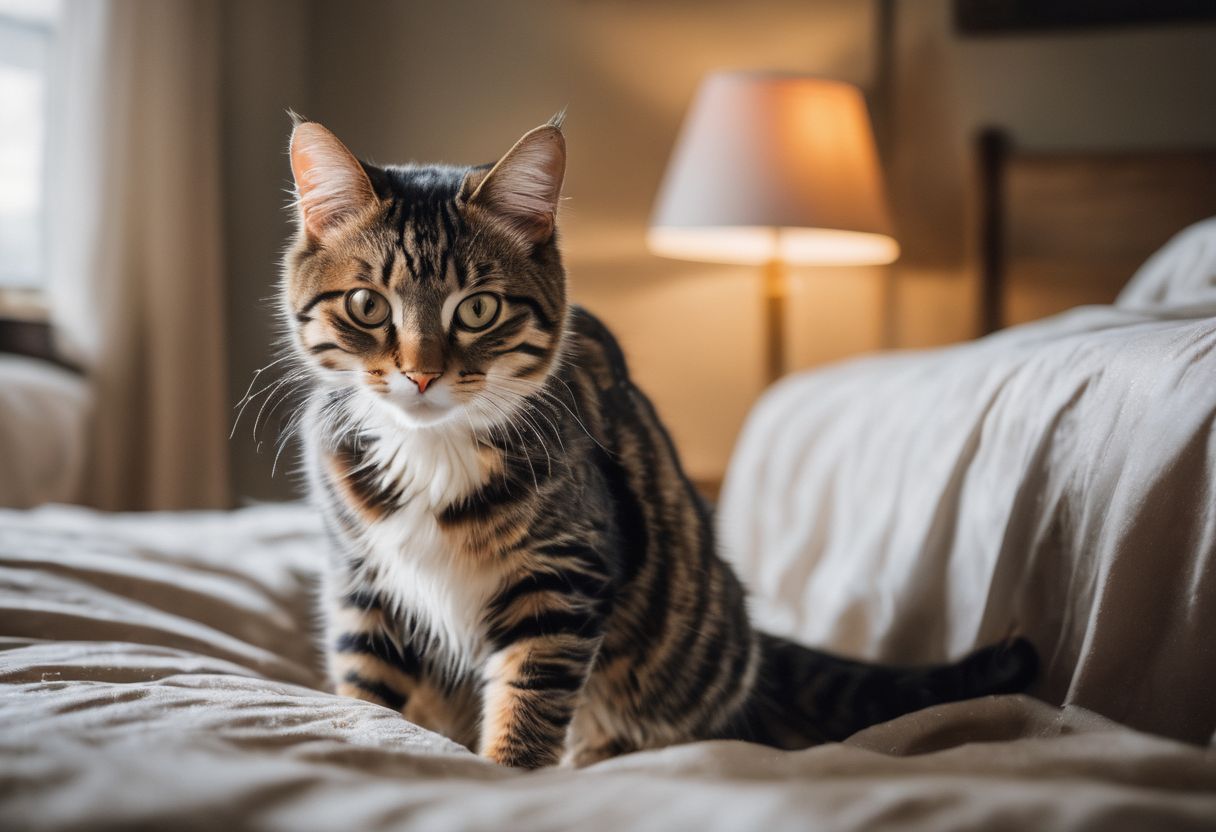“Has your feline friend ever decided to release their bladder on you unexpectedly? It’s a behavior that most cat owners find puzzling and slightly concerning. Understanding the reasons behind why did my cat pee on me.
Let’s dive into unraveling these kitty mysteries together, ensuring your home remains free of surprise puddles.”.
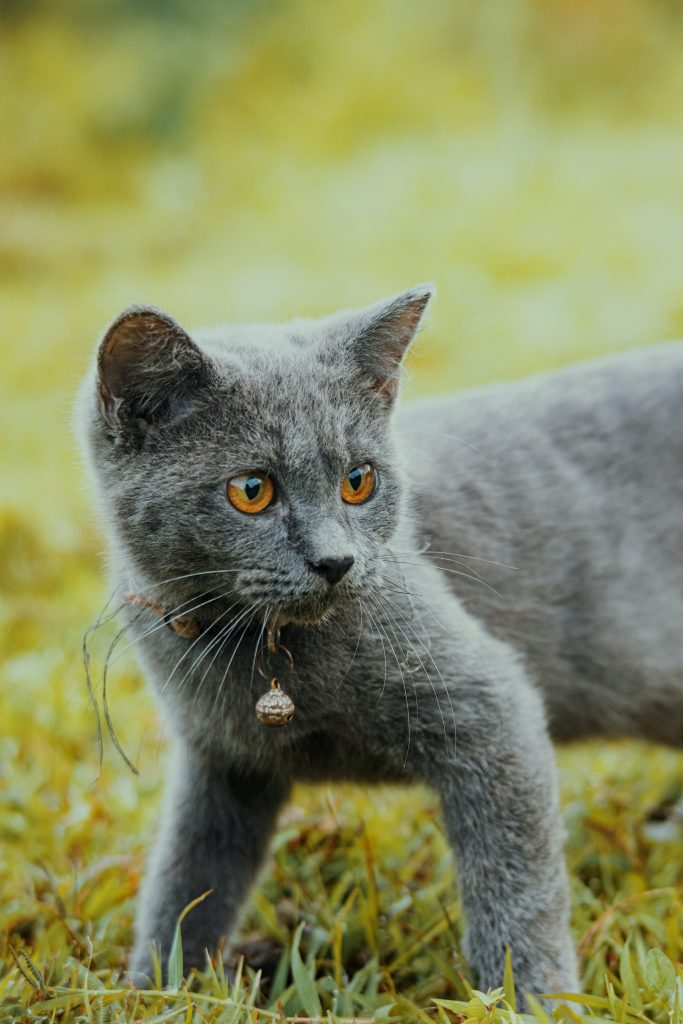
Key Takeaways
- Cats may pee on humans due to health issues like urinary tract infections or bladder stones, a messy litterbox, fear of other cats, dislike of litter, or loss of bladder control.
- Cat urine can pose health risks and cause respiratory problems in both humans and pets.
- To prevent inappropriate urination behavior, clean the litterbox regularly, create a stress – free environment for your cat, give attention and affection to your cat, consider using feline pheromone products, and explore behavioral modification techniques.
Reasons Why Your Cat May Pee on You
Your cat may pee on you due to UTIs, a messy litterbox, fear of other cats, dislike of litter, or loss of bladder control.
UTIs
A cat may pee on you because it has a UTI. A UTI is a sickness in the cat’s water passage. It can hurt when they go to pee. This may make them not want to use their litter box and cause strange peeing acts like peeing on you.
To fix this, you need to see a vet right away. The vet will give your cat medicine to help it get better.
Messy litterbox
A messy litterbox can be one reason why your cat may pee on you. Cats are naturally clean animals and prefer to have a tidy place to do their business. If the litterbox is dirty or filled with waste, your cat may feel uncomfortable using it and decide to urinate elsewhere instead, like on you or your clothes.
It’s important to regularly clean the litterbox, ideally daily, by scooping out any clumps of urine or feces, and replacing the soiled litter with fresh ones. This will help create a more appealing environment for your cat and reduce the likelihood of accidents outside of the litterbox.
Another thing to consider is the type of litter you use. Some cats have preferences when it comes to texture or scent, so if they don’t like the litter you provide, they may avoid using it altogether.
Experiment with different types of litters until you find one that your cat prefers. It’s always a good idea to have multiple litterboxes in different locations throughout your home as well, especially if you have multiple cats or a large living space.
This way, there are plenty of options available for them when nature calls.
Fear of other cats
Cats can sometimes pee on their owners due to fear of other cats. This behavior may occur if your cat feels threatened or intimidated by the presence of another feline in the household or neighborhood.
Cats are territorial animals, and they may urinate on their owner as a way to mark their territory and assert dominance. Additionally, the scent of another cat can cause anxiety and stress for your furry friend, leading to inappropriate urination.
It’s important to provide a calm and secure environment for your cat, ensuring that they have a safe space away from other cats if needed.
Dislike of litter
Cats may pee on their owners if they dislike the litter in their litter box. Some cats are very particular about where they do their business and may not like certain types of litter or the way it feels on their paws.
This can cause them to avoid using the litter box altogether and find other places, like your clothes, to pee instead. It’s important to find a type of litter that your cat is comfortable with and make sure the litter box is kept clean so they don’t feel the need to go elsewhere.
Loss of bladder control
If your cat is peeing on you, it could be because they have lost control of their bladder. This might happen due to health issues like urinary tract infections or bladder stones. It’s important to take your cat to the vet for a check-up if you suspect this problem.
They can provide the necessary treatment and advice to help your cat regain control of their bladder. Additionally, providing a stress-free environment and keeping the litter box clean can also reduce incidents of inappropriate urination.
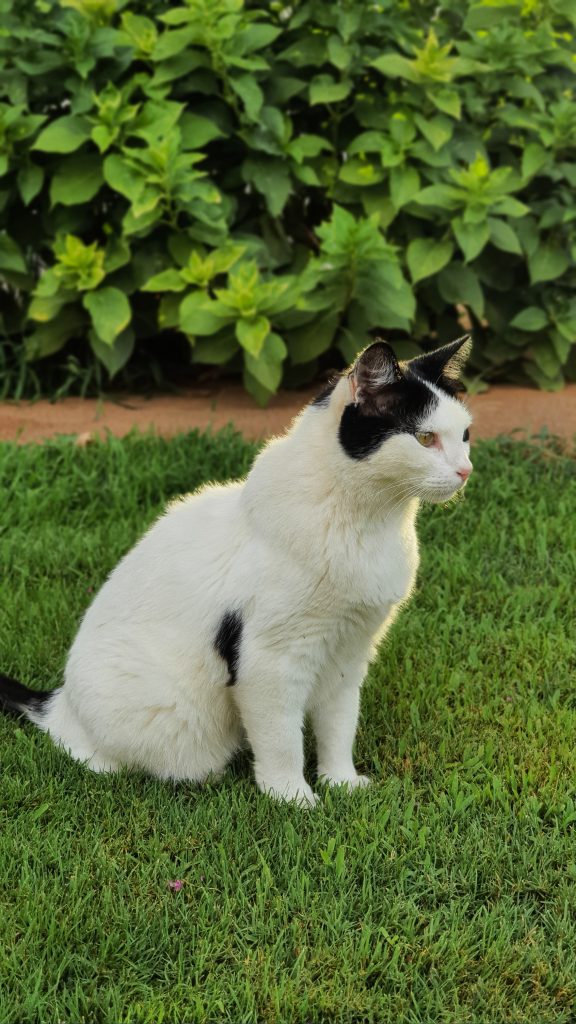
Health Threats Associated with Cat Urine
Cat urine can pose health risks, so it’s important to address the issue if your cat is peeing on you. One of the main concerns is urinary tract infections (UTIs). UTIs can cause pain and discomfort for cats while urinating, and they may start avoiding their litter box as a result.
Another concern is that cat urine contains ammonia, which can irritate the respiratory system and cause breathing problems in both humans and pets. In some cases, exposure to cat urine over time may also increase the risk of developing allergies or asthma.
To ensure everyone’s health and well-being, it’s crucial to take action if your cat is peeing on you.
Additionally, cat urine can be an indicator of underlying health issues. When a cat starts peeing outside of their litter box, it could be a sign of bladder stones or other urinary problems.
These conditions need prompt medical attention from a veterinarian to prevent complications and provide appropriate treatment. Remember that addressing any health threats associated with cat urine requires professional help and regular check-ups with your veterinarian are important for detecting potential issues early on.
Overall, addressing inappropriate urination behavior not only resolves hygiene concerns but also ensures the overall well-being of both you and your furry companion by preventing potential health threats associated with cat urine exposure.
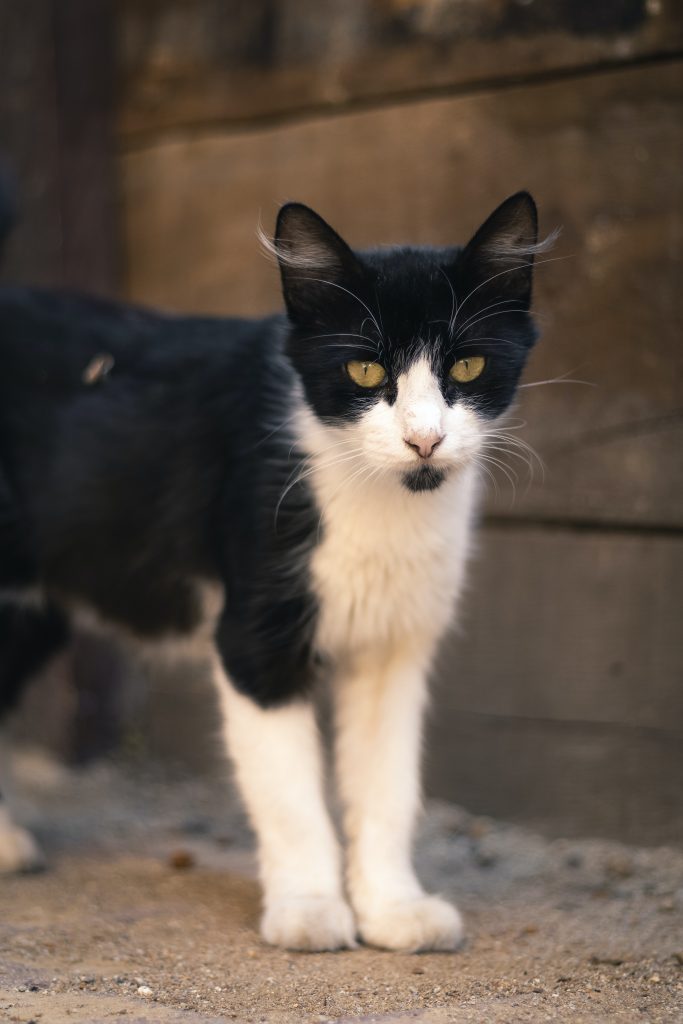
How to Stop Inappropriate Urination
Clean the litterbox regularly, create a stress-free environment, give attention and affection to your cat, consider using feline pheromone products, and explore behavioral modification techniques.
Keep litterbox clean
To prevent your cat from peeing on you or in inappropriate places, it’s important to keep their litterbox clean. Cats are very particular about cleanliness and may avoid using a dirty litterbox.
Scoop the litterbox at least once a day and change the litter regularly. This will help ensure that your cat has a clean space to do their business and reduce the chances of accidents happening elsewhere in your home.
A clean litterbox also helps maintain good hygiene for both you and your cat.
Provide a stress-free environment
Creating a stress-free environment for your cat is essential to help prevent them from peeing on you or inappropriately. Cats are sensitive creatures and can become stressed by various factors, such as changes in their routine or the presence of other pets.
To provide a stress-free environment, make sure to maintain a consistent daily routine for your cat. This includes feeding them at the same time each day and providing regular playtime and attention.
Additionally, create a calm and quiet space for your cat where they can retreat when they feel overwhelmed. Use feline pheromone products like diffusers or sprays that can help create a calming atmosphere.
Give attention and affection to your cat
Show your cat love and attention to help prevent them from peeing on you. Cats need affection and interaction with their owners to feel happy and secure. Spend quality time playing, petting, and talking to your cat every day.
This will strengthen your bond and reduce stress that could lead to inappropriate urination. Remember, cats communicate through behavior, so giving them the attention they crave can minimize the chance of them marking their territory by peeing on you or other objects in the house.
Consider feline pheromone products
If your cat is peeing on you, considering feline pheromone products might help. These products release synthetic versions of the natural pheromones that cats use to communicate with each other.
They can have a calming effect on cats and help reduce stress and anxiety. Feline pheromone sprays or diffusers can be used in your home to create a more soothing environment for your cat, which may discourage them from urinating in inappropriate places.
It’s always important to consult with a veterinarian before trying any new products for your cat’s behavior issues.
Explore behavioral modification techniques
To prevent your cat from peeing on you, try the following techniques:
- Provide a consistent routine: Cats thrive on structure and predictability. Stick to a daily routine for feeding, playtime, and litter box cleaning.
- Use positive reinforcement: Reward your cat with treats or praise when they use the litter box correctly. This will help reinforce good behavior.
- Create a safe space: Set up a designated area where your cat feels secure and comfortable. Include their bed, toys, and scratching posts to create a stress-free environment.
- Use deterrents: If your cat tends to pee in certain areas, use deterrent sprays or double-sided tape to discourage them from urinating there.
- Seek professional help if needed: If the issue persists despite your efforts, consider consulting a veterinarian or animal behaviorist for additional guidance and support.
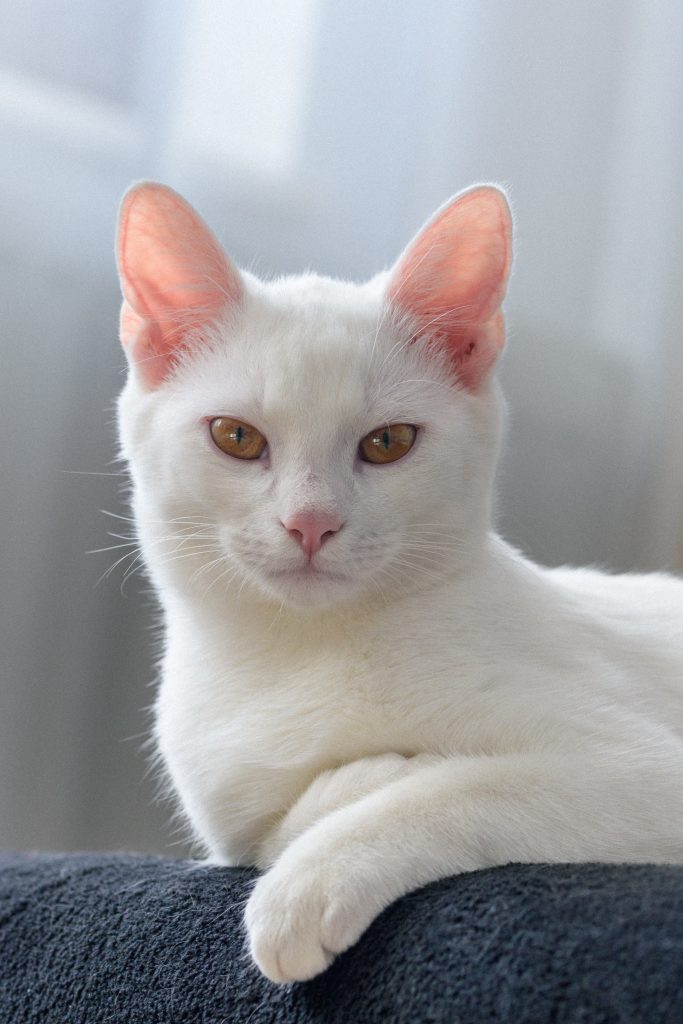
Conclusion
In conclusion, if you’ve ever wondered why your cat peed on you, there could be a few reasons. It might be marking its territory, feeling stressed or anxious, or even trying to get your attention.
Remember to address any underlying issues and provide a clean litter box and a calm environment for your feline friend. Seek professional help if needed, but remember that punishment is not the answer.
FAQs
1. Can cat stress and anxiety cause them to pee on me?
Yes, cats show stress and anxiety by changing their urination habits, including peeing on you or your clothes.
2. Why does my cat only pee on my belongings?
Cats use urine marking as a form of communication. Peeing on clothes carries the cat’s personal essence, sending out a message in feline behavior terms.
3. Could urinary issues be making my cat pee strangely?
Urinary tract infections (UTIs), pain while urinating or other urinary issues in cats might cause changes in where they choose to urinate.
4. Does peeing on me mean that my cat is marking territory?
Yes, it could be seen as ‘scent marking’. Cats have strong feline instincts for territoriality; this includes spraying urine at specific places like humans’ clothes.
5. Will changes around the house make my cat pee on me?
Household changes can lead to feline stress which may result in different behaviors such as litter box problems or even peeing outside their normal spot!
6. How do I keep my pet from peeing due to suffering?
Ensure good health and happiness for your kitty! If signs of pain are noticed during urination or if they seem anxious often, reach out to a vet who understands feline psychology.


